Why reparations advocates have a problem with Biden's African Diaspora engagement council
Washington DC - Amid the growing push for reparative justice in the US, Joe Biden declared during the US-Africa Leaders Summit on Tuesday that he would establish a President's Advisory Council on African Diaspora Engagement in the United States – with no reference to reparations.
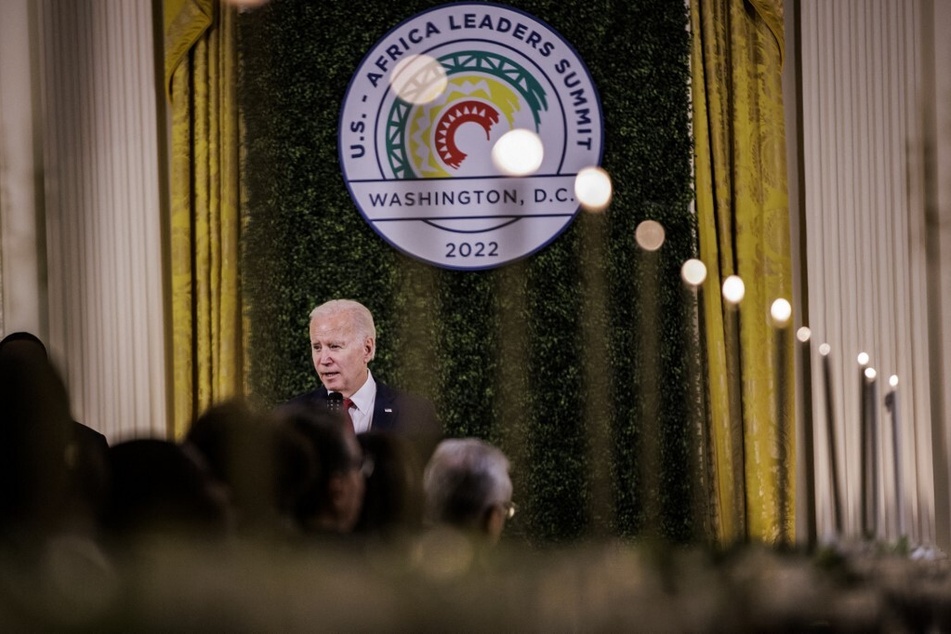
The advisory council will be tasked with developing strategies to boost racial equity initiatives for African Diaspora communities, support the United Nations' Permanent Forum on People of African Descent, foster educational exchange programs, and strengthen trade and investment opportunities with the African continent.
Though it's not yet clear who will sit on the council, Biden's executive order dictates that the body is to have a maximum of 12 members who will serve two-year terms without compensation or reimbursement. Those members are to include both African immigrants and descendants of Black people enslaved in the US.
This, however, is only part of the story.
The push for reparations
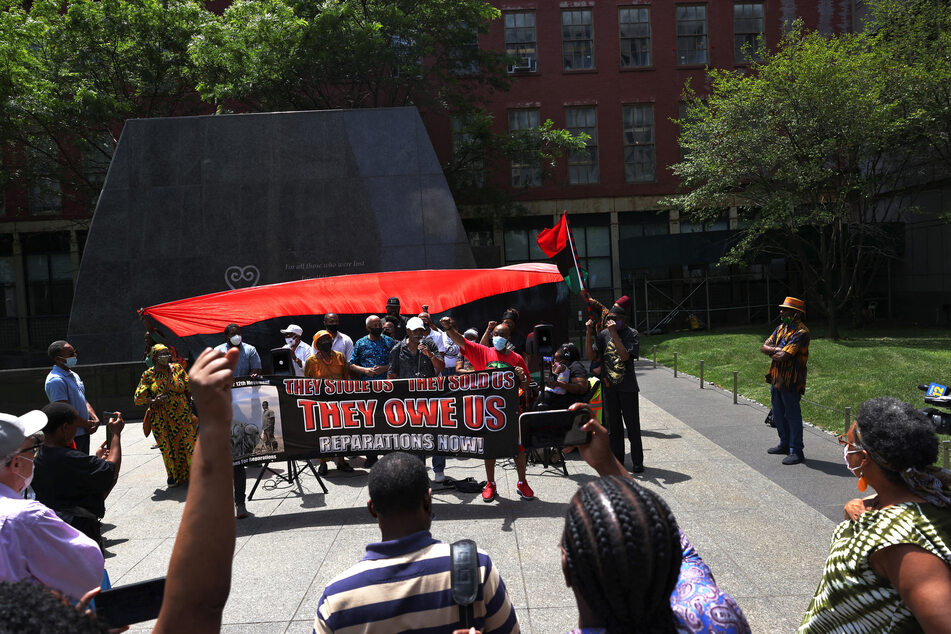
For the greater part of his presidency, racial justice activists have been pushing Biden to establish a federal reparations commission by executive order to acknowledge and address the country's continued legacy of chattel slavery, Jim Crow, and present-day systemic racism.
Recent polling data show that reparations has majority support among Black Americans, the Democratic Party's most loyal voting bloc. Biden capitalized on this energy by declaring his support for a reparations study commission on the campaign trail in 2020. The Democratic Party has also endorsed the formation of a commission in its 2020 platform, a position the Democratic National Committee reaffirmed last March.
But after winning majorities in the House and Senate and control of the presidency in 2020, Democrats have failed to move past symbolic gestures to concrete action. Now, HR 40, the Commission to Study and Develop Reparation Proposals for African Americans Act, looks doomed to expire without a vote at the end of the year as calls for executive action go unheeded.
While the formation of the African Diaspora engagement council is apparently intended as a commitment toward healing for people of African descent, leaders in the US reparations movement have a different opinion about the administration's motives – and it's not positive.
Biden's executive order appears to preclude reparations
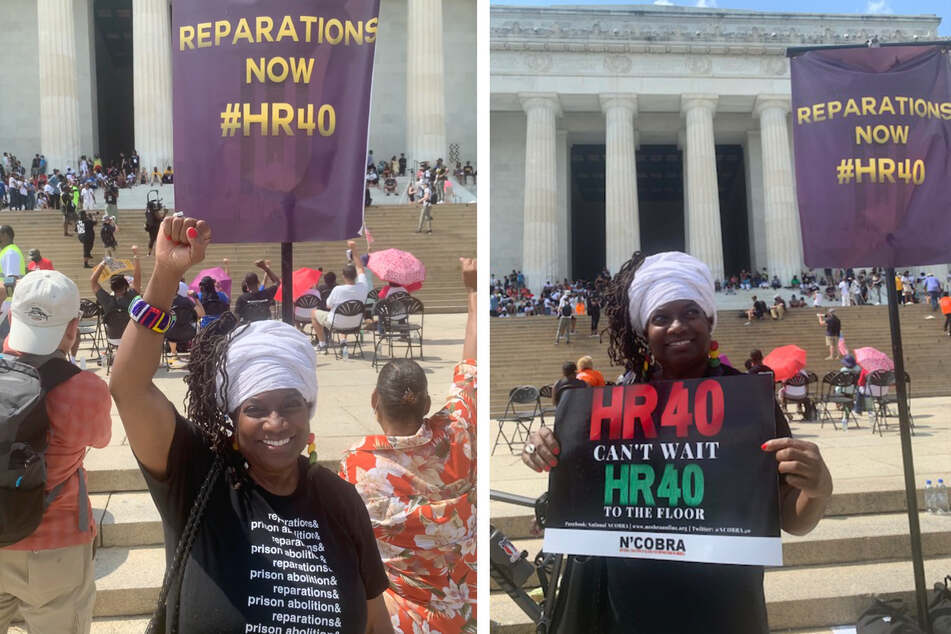
One of the primary objections US reparations advocates have raised since Biden's announcement concerns the apparent limitations on the focus and scope of the council's work.
Nkechi Taifa, attorney, author, and director of the Reparation Education Project, did note that the council could make beneficial contributions to issues facing Black communities. But she also pointed out a particularly problematic passage which appears to rule out the idea of reparations for people of African descent.
The final paragraph of the executive order says that the council's formation "is not intended to, and does not, create any right or benefit, substantive or procedural, enforceable at law or in equity by any party against the United States, its departments, agencies, or entities, its officers, employees, or agents, or any other person."
Essentially, this means that African Diaspora communities won't be able to raise claims against the US government, the primary entity responsible for the Transatlantic Slave Trade and institutionalization of racist policies that drive present-day disparities in wealth, health, housing, education, and more.
"Despite the value of African diasporic engagement in the US, this concluding provision is both unacceptable and offensive, and should be purged, replaced by a provision adopting via executive order the language within HR 40 and S 40," Taifa told TAG24 NEWS.
Biden's executive order seems to lack clear objectives
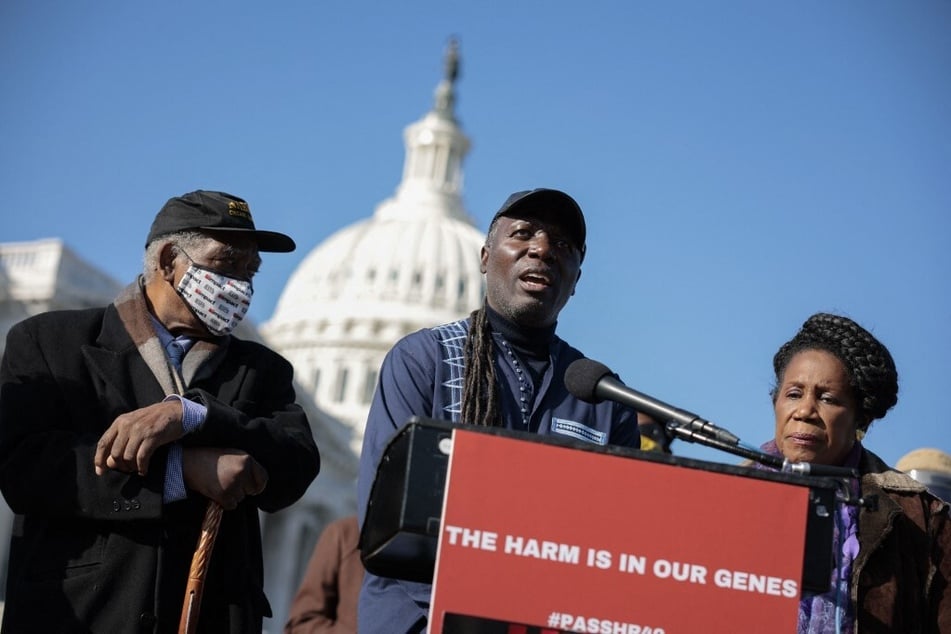
Without an accompanying executive order on reparations, Black-American activists fear the council won't be equipped to address the roots of anti-Black racism in the US and around the world, and instead merely prune around the edges.
The lack of clear language around the history of systemic racism in the US and concrete goals to combat it don't help matters.
"The President's Advisory Council on African Diaspora Engagement in the United States is an egregious insult to all people of African descent, whether on the continent or the 46 million who reside in this country," said Kenniss Henry, legislative director of the National Coalition of Blacks for Reparations in America. "46 million people who for the past three decades have lobbied unwaveringly for passage of HR 40 legislation to stand up a commission that would study the 400 years of pernicious history loosely recognized in this executive order."
With no goals and objectives set anywhere in the announcement, she called the whole thing "nothing more than a photo-op."
Not only does the executive order appear to ignore the need for targeted repair for Black communities, but some also fear its language relegates the bulk of African-American experiences to the margins of discussions about systemic racism in the US.
Kamm Howard, executive director of Reparations United, said, "It is unfortunate that the president thought that creating an advisory council for 2 million native Africans living in the US, before creating a reparations commission for 50 million Americans with African descent, with over 400 years of American nativity, is appropriate."
"The Council is confusing in who it serves and what it can actually achieve. African Americans, who are owed a unique debt of repair, will not subsume our demand in a secondary or shared position with anyone. This is insulting," he added.
Biden's executive order cannot serve as a replacement for a reparations commission
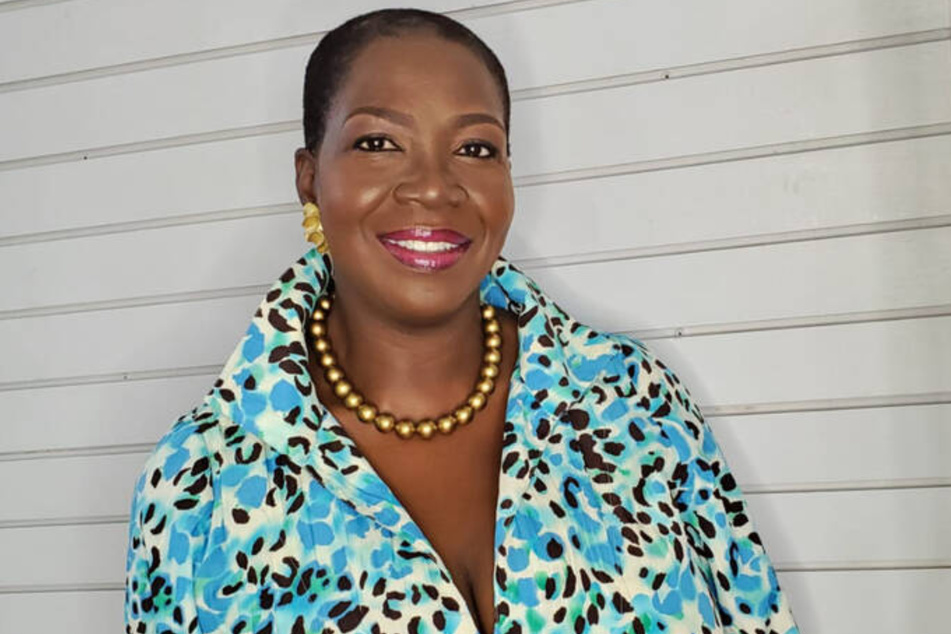
Racial justice advocates were adamant that the presidential council cannot be seen as a replacement for a commission specifically dedicated to delivering on reparations.
"We applaud the establishment of the Advisory Council on African Diaspora Engagement, which recognizes the importance of Africa and her Diaspora, comprising a quarter of the global population," said Enith Williams, founder of the Reparations Finance Lab. "This action, however, cannot be seen as one in lieu of the establishment of a reparations commission as put forward in HR 40."
Dreisen Heath, a racial justice researcher and advocate in Human Rights Watch's US Program, also questioned the efficacy of an African Diaspora engagement council that does not include reparations as part of its remit: "How could you ignore centuries of crimes and systemic discrimination against people of African descent if you are setting up any council on African Diaspora engagement?" she asked.
"Let's be clear, there must be a separate and comprehensive process, led by the Black community, to address reparations for chattel slavery, anti-Black institutions and practices, and ongoing abuses today," she added.
"Providing reparations must not be a side project or a footnote for the administration’s 'racial equity' agenda."
Timing of Biden's executive order under the spotlight

Ultimately, many reparations advocates have questioned the timing of Biden's executive order to establish an African Diaspora equity council – which had comparatively little grassroots support – at the height of a national push for a reparations commission.
If Biden continues to dance around their demands, activists say he could face consequences at the ballot box.
"Reparatory justice coalitions, other special interest groups, and supporters are all calling for an HR 40 executive order from the White House, not an executive order that takes on the 'wait and see' what is next, if anything," Henry insisted. "Such behavior must be translated into yet another display of disrespect for those most loyal to the party and remembered the next time we are called upon to save the party."
Heath agreed, saying, "This move by the Biden administration is yet another deliberate punt to answer to reparations demands. This is a silencing tactic, specifically to the call for Biden to issue an executive order that establishes a federal reparations commission, which the president has the power and the support to enact today."
"The human cost of inaction and debt the US owes to people of African descent in the US only gets larger by the day, and yet they continue to default to obstructing this urgently-needed process."
Cover photo: Anna Moneymaker / GETTY IMAGES NORTH AMERICA / Getty Images via AFP
